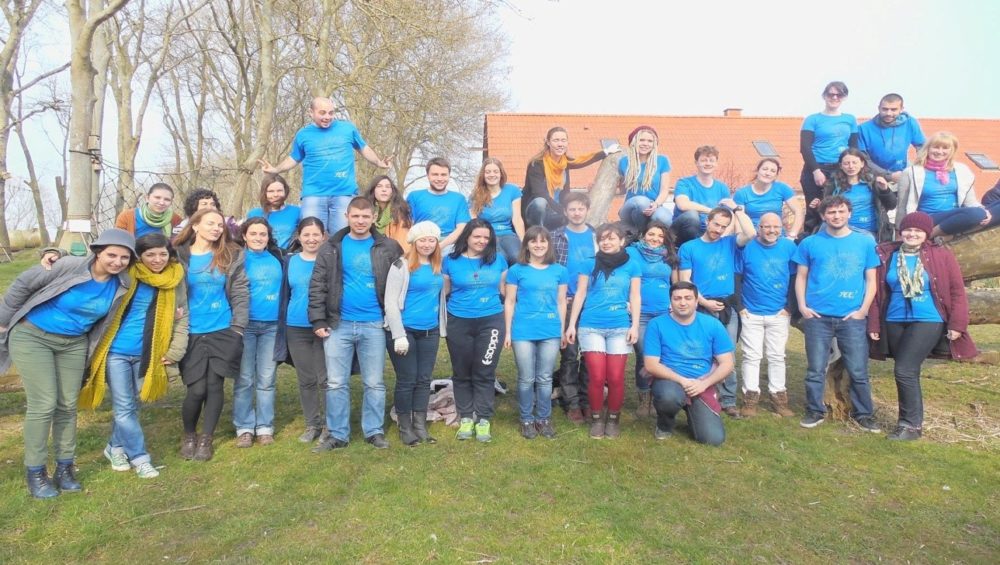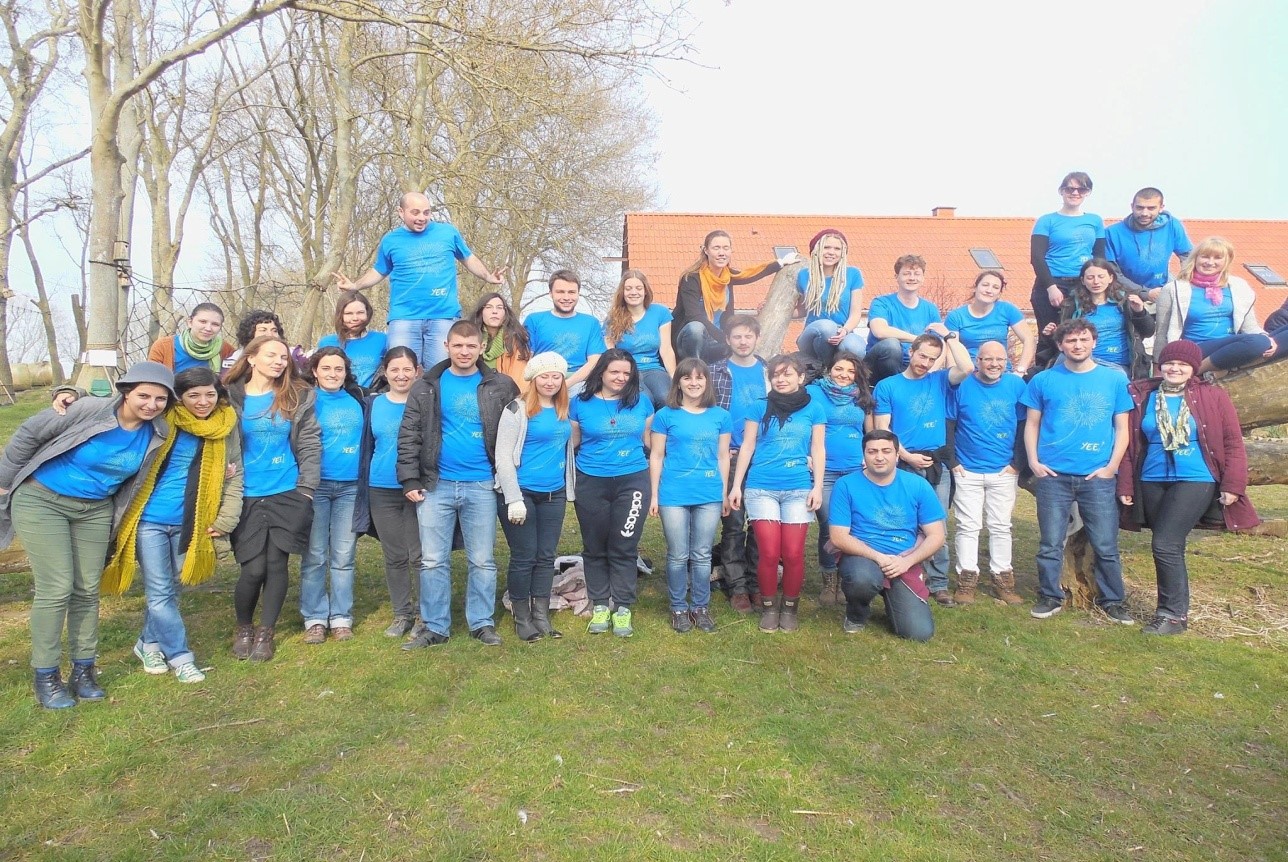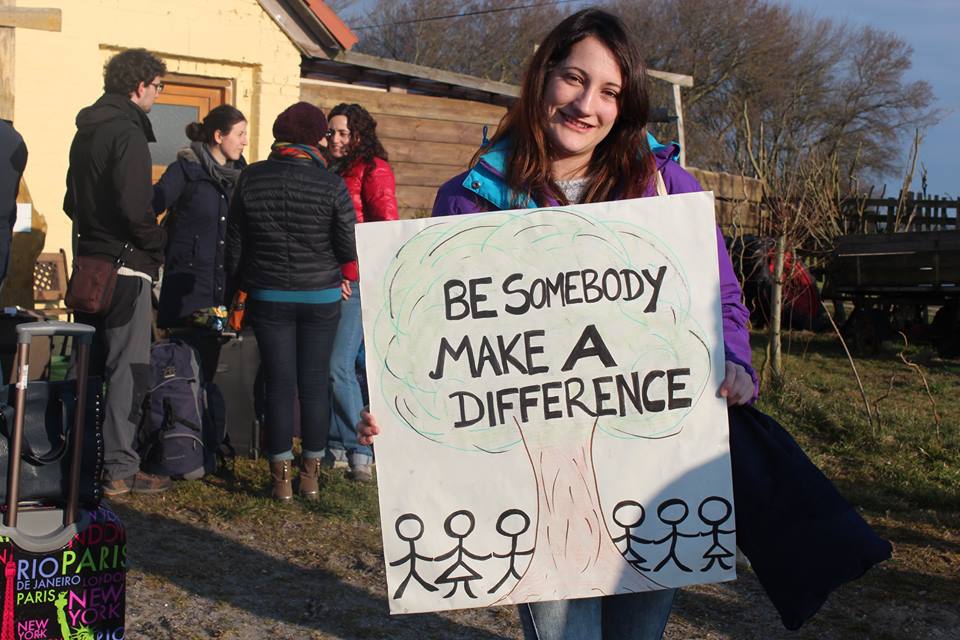The small town of Wiek, in Rügen, Germany was the place that brought together 29 young people from 11 countries of the world. From March 20-28, 2015, young people participated in the “Training for new environmental trainers” organized by YEE (Youth and Environment Europe) and FӦJ (Voluntary Ecological Year) with the support and funding of the Erasmus+ program.
The participants had different experiences in preserving and protecting nature in the places where they work and live. I was lucky enough to be one of the young participants, as a representative of EcoAlbania, who were trained on environmental education methods. Non-formal training methods were very effective in terms of ease of understanding and practice in everyday life.
The methods used during the training were such as: Learning by learning, informal methods, methods and steps of writing a project, ways of communicating using sign and vocal language, how to solve situations when dealing with challenging behavior, environmental education methods, motivation, leadership skills, teamwork, etc.
Each day of the training was designed in such a way that each of the participants had the opportunity to show their creativity and at the same time prepare for the final stage which would culminate with the presentation of a workshop. In no more than 40 minutes we had to summarize the learned methods, in our own way. Two of the participants, Natia from Georgia and Lena from Germany, chose to work for the giant dam in Georgia… What a coincidence, the same situation with the Vjosa river in Albania! But, I continue to keep this information to myself for a little while longer…
At the end of this day filled with tension, excitement and various games, I asked the participants if they were interested in watching a short video about Europe’s only wild river. Their interest was great. The training hall was now transformed into a cinema, where everyone eagerly waited to watch the sights along the Vjosa River. The short film “The Wild Pearl of Europe” filled every empty space of the hall. They did not believe that the sights were real and that they were in Albania, a small country in the South-Western Balkans… Everyone showed great desire to come and visit this river up close, to practice rafting, canoeing, hiking, birdwatching, as well as for the curative waters of the Baths of Bënja. After the film ended, I introduced them to the real situation, to the threats that threaten this wild river of Europe and above all to the “Save the blue heart of Europe” campaign. There were many questions, but the greatest interest was on the work that EcoAlbania is doing, together with international partners Riverwatch and EuroNatur to stop the destruction of this precious treasure. I had the pleasure of acquainting them with all the steps we have taken in this direction, such as: meetings with the local community, press conferences, coverage of the issue in the national and international media, as well as the signing of the “Vjosa National Park” declaration.
The young eco-trainers of Europe became the first to sign the statement “Saving the blue heart of Europe” at the international level and assured me of their support in reflecting the situation in the organizations where they work and not only. One of the participants, Linda Mazumacha, from Latvia, in a personal envelope of impressions, asks me not to stop and to continue this campaign with even more energy, wishing us luck on the way to preserving Vjosa.
I am very happy that I also gave my contribution to the preservation of Vjosa River, a national and spiritual asset, natural heritage for us, for future generations and for nature lovers around the globe. They love beautiful nature, not stone walls…Berlin tore down its wall, that wall that separated people from life, but why should we build endless walls that, along with others, will also divide the lives of many living organisms, especially of fish and eels?
Eco-trainers have had their say against dams…WHAT ABOUT YOU?
By Earta Nuna/EcoAlbania









